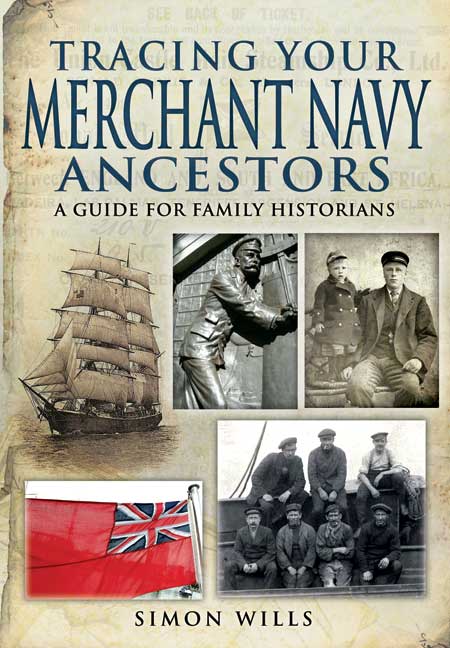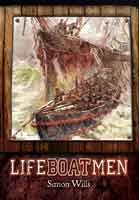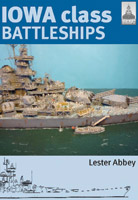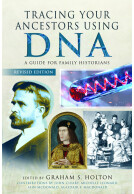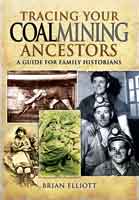Tracing Your Merchant Navy Ancestors (Paperback)
Imprint: Pen & Sword Family History
Series: Tracing Your Ancestors
Pages: 192
Illustrations: 40 illustrations
ISBN: 9781848846517
Published: 2nd October 2012
Last Released: 7th March 2022
(click here for international delivery rates)
Need a currency converter? Check XE.com for live rates
| Other formats available | Price |
|---|---|
| Tracing Your Merchant Navy Ancestors ePub (13.2 MB) Add to Basket | £6.99 |
What was a merchant seaman's life like in the past, what experiences would he have had, what were the ships like that he sailed in, and what risks did he run? Was he shipwrecked, rewarded for bravery, or punished? And how can you find out about an ancestor who was a member of the long British maritime tradition? Simon Wills's concise and informative historical guide takes the reader and researcher through the fascinating story of Britain's merchant service, and he shows you how to trace individual men and women and gain an insight into their lives.
In a series of short, information-packed chapters he explains the expansion of Britain's global maritime trade and the fleets of merchant ships that sustained it in peace and war. He describes the lives, duties and tribulations of the generations of crews who sailed in these ships, whether as ordinary seamen or as officers, stewards, engineers and a myriad of other roles. And he identifies the websites you can explore, the archives, records and books you can read, and the places you can visit in order to gain an understanding of what your seagoing ancestor did and the world he knew.
Simon Wills's practical handbook will be essential reading and reference for anyone who is keen to discover for themselves the secrets of our maritime past and of the crewmembers and ships that were part of it.
As featured in
Who Do You Think You Are
Listed in 'Resources' part of author article Merchant Navy Crew Lists
WDYTYA? magazine October 2019
A really useful concise reference book with a wealth of information on Merchant Navy records, which will enable you to put together interesting stories on the lives of ancestors who went to sea.
Essex Family Historian
If there is a merchant navy ancestor in your family this book would make a worthwhile purchase.
British Association for Local History
Descriptions of life in the Merchant Navy make the records more comprehensible and enable researchers to understand the purpose of the records they are searching.
Genealogist’s Magazine
Genealogist’s Magazine
Tracing your Lancashire Ancestors, Sue Wilkes, 9781848847446
A history of Lancashire life is given together with details of the surviving records and where to find them.
There is a vast amount of information in this book not only for vrews but ships and life aboard a varitety of vessels for sailors and passengers alike.
Journal of Glasgow and West Scotland Family History Society
In 1835 the ten UK ports with most registered merchants ships over 15 tons, included Aberdeen and Greenock. If you find a captain, ship's engineer, able seaman, 'donkeyman', bosun, ship's stoker, purser or telegraph officr among your ancestors, this is the book for you.
Genealogy is growing in interest and this book could prove very useful for people tracing their sea-going ancestors and I would recommend it to anyone with this in mind.
Shipping –Today and yesterday April 2013
Whether you are researching a seaman or a ship, Tracing your Merchant Navy Ancestors is a book that will hold your interest from cover to cover, with a wealth of information contained in a well structured chapters, making it easy to dip into.
North Irish Ancestors, Sandra Ardis
This is an easy to read informative book that will be an essential reference guide for those with seamen in their families.
If you don’t know your first from you second dogwatch, need to find out, exactly, a boatswain, donkeyman, purser, boy, greaser or lamp trimmer did during his day to day business and can’t tell a clippers from a cutter, Simon Wills’ new guide to tracing Merchant Navy forebears may prove just the seaman’s ticket.
Your Family History January 2013
This concise and informative historical guide takes the reader and researcher through the history of Britain’s merchant navy service, looking at life in the merchant feet, and showing how to trace individual ships, men and women and gain an insight into their lives. It details a huge range of different sources, with information about how and where they can be consulted. An invaluable resource for the family historian.
Ships Monthly, Feb 2013
…Simon Wills had penned this practical handbook for those researching their merchant seamen forebears. Discover what life was like for a crewman on a Merchant Navy ship in the past, what the vessels were like that he sailed in and the records you can unearth to trace his (or her) story, both in the archives and online. Each concise chapter is dedicated to a different theme, from Britain’s Merchant Fleet to Finding and Following a Ship, Tracing Seamen and Non-Officers and Places to Visit. There are a handful of case histories here too, so you can see examples of how to research a Victorian captain or a merchant seaman who died in World War II. Essential reading for those wanting to understand Britain’s merchant maritime history of trace Merchant Navy ancestors.
Your Family Tree, February 2013
In a series of short, information-packed chapters he explains the expansion of Britain’s global maritime trade and the fleets of merchant ships that sustained it in peace and war. He describes the lives, duties and tribulations of the generations of crews who sailed in these ships, whether as ordinary seamen or as officers, stewards, engineers and a myriad of other roles. And he identifies the websites you can explore, the archives, records and books you can read, and the places you can visit in order to gain an understanding of what your seagoing ancestor did and the world he knew.
Kent Family History Society Journal
Simon Will’s practical handbook will be essential reading and reference for anyone who is keen to discover for themselves the secrets of our maritime past and of the crewmembers and ships that were part of it.
This concise and informative historical guide takes the reader and researcher through the story of Britain’s merchant service and shows how to trace individual men and women and gain insight into their lives. Much information has survived for merchant navy employees, especially after 1835, and the author focuses on the subjects that people most commonly want to investigate, using websites, archives and records.
West Surrey FHS, December 2012
Nowhere in Britain, it is said, is more than about 70 miles from the sea. That being so, it is likely that many of us will come across ancestors who went to sea. That is why this is an enormously useful book.
FFHS
The book describes life at sea, in peace and in wartime but the meat of the text is how to find people and how to find shops. As Mr Wills says, there are many records of ships and seamen but this abundance can itself be a problem; many of us must have spent ages paddling up the wrong creek. The author skilfully navigates us through the shoals and eddies of various Lloyd’s Lists and TNA’s labyrinthine filing systems. Personally, I would not dream of going anywhere near Kew without this book. He tells the reader precisely what TNA record series to ask for. In addition, he mentions a number of on-line sources; I have tried some of them and already added several to my ‘favourites’.
This is an extremely useful book for anyone seeking a Merchant Navy ancestors and I recommend it highly.
The author examines the online in detail and then goes further than any merchant navy guide before.
Who Do You Think You Are Magazine
Then follows a section on tracing ships and seamen and I was delighted to see that the author has actually kept abreast of developments in regards o these records, so his information is bang up to date – the reader may be surprised by what is available now that wasn’t just a few years ago
For those who want to go even further there is a bibliography that I would highly recommend. And if all of that wasn’t enough to satisfy even the most tenacious of researchers, there is a list of repositories for those who have exhausted online resources!
If you think you have researched navy forebears, this book will make you think again.
About Dr Simon Wills
Dr SIMON WILLS is a genealogist, historian and journalist and a regular contributor to Family Tree, the BBC’s Who Do You Think You Are? and other magazines. He writes mainly about maritime history and genealogy, but he also has a special interest in health and disease in the past. He has given presentations and interviews all around the UK for history, genealogy and literary festivals, and for organisations such as the BBC, National Trust and National Archives. His most recent publications include a guide to maritime photographs, Tracing Your Seafaring Ancestors, and a popular account of our forebears' illnesses, How Our Ancestors Died.







